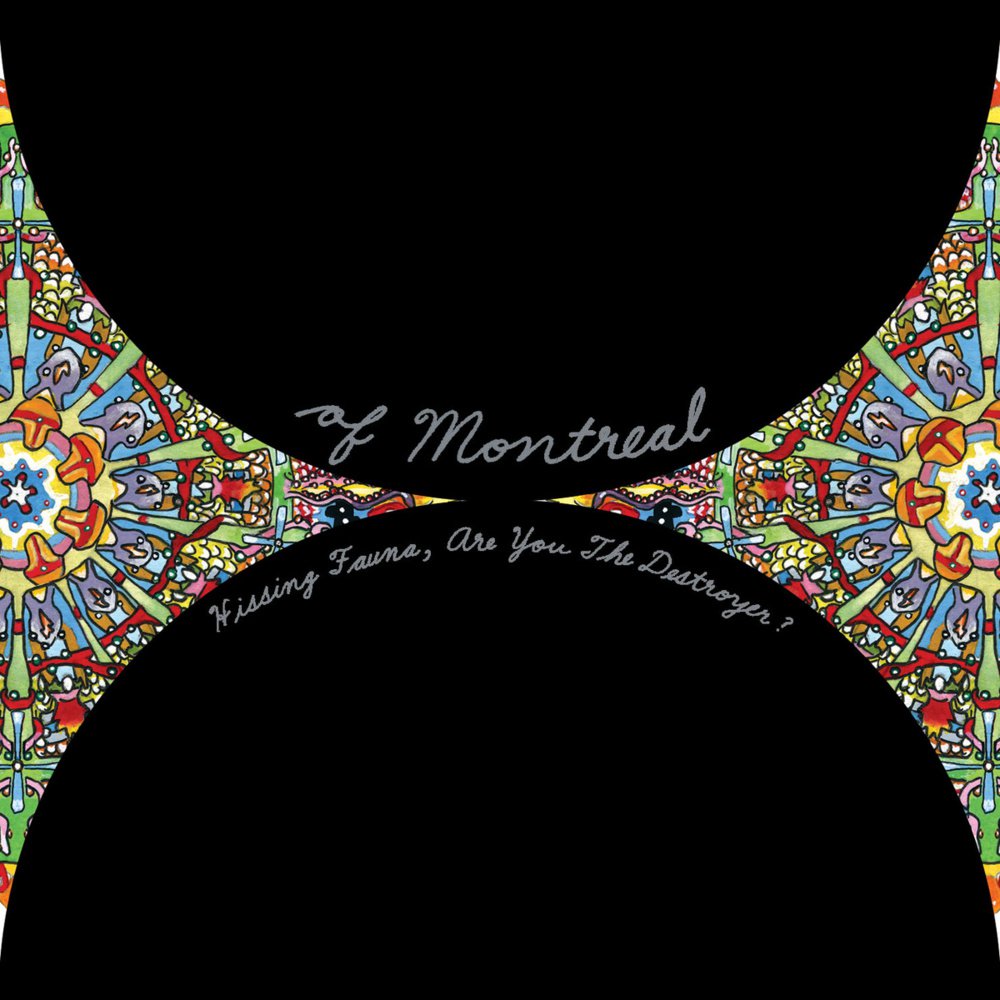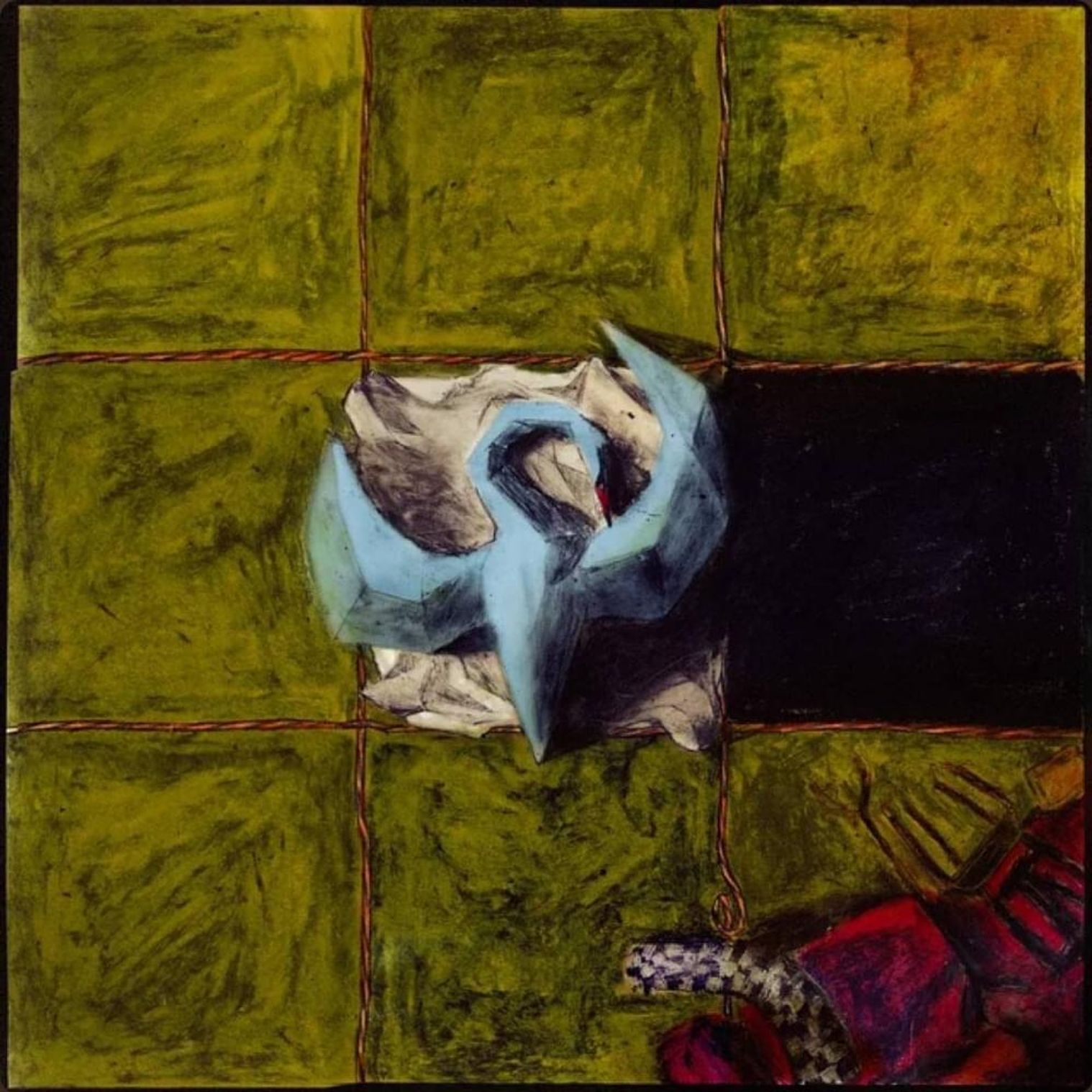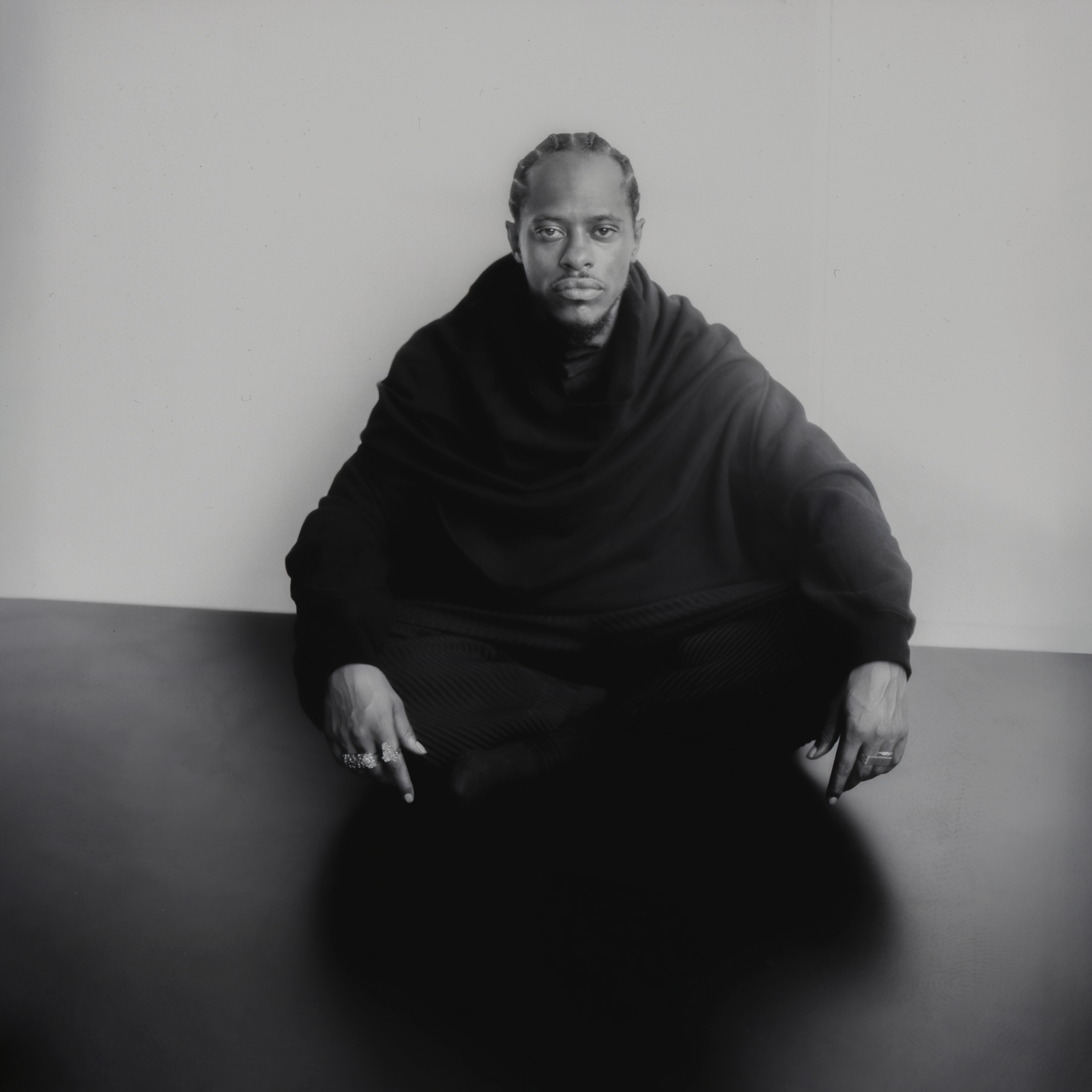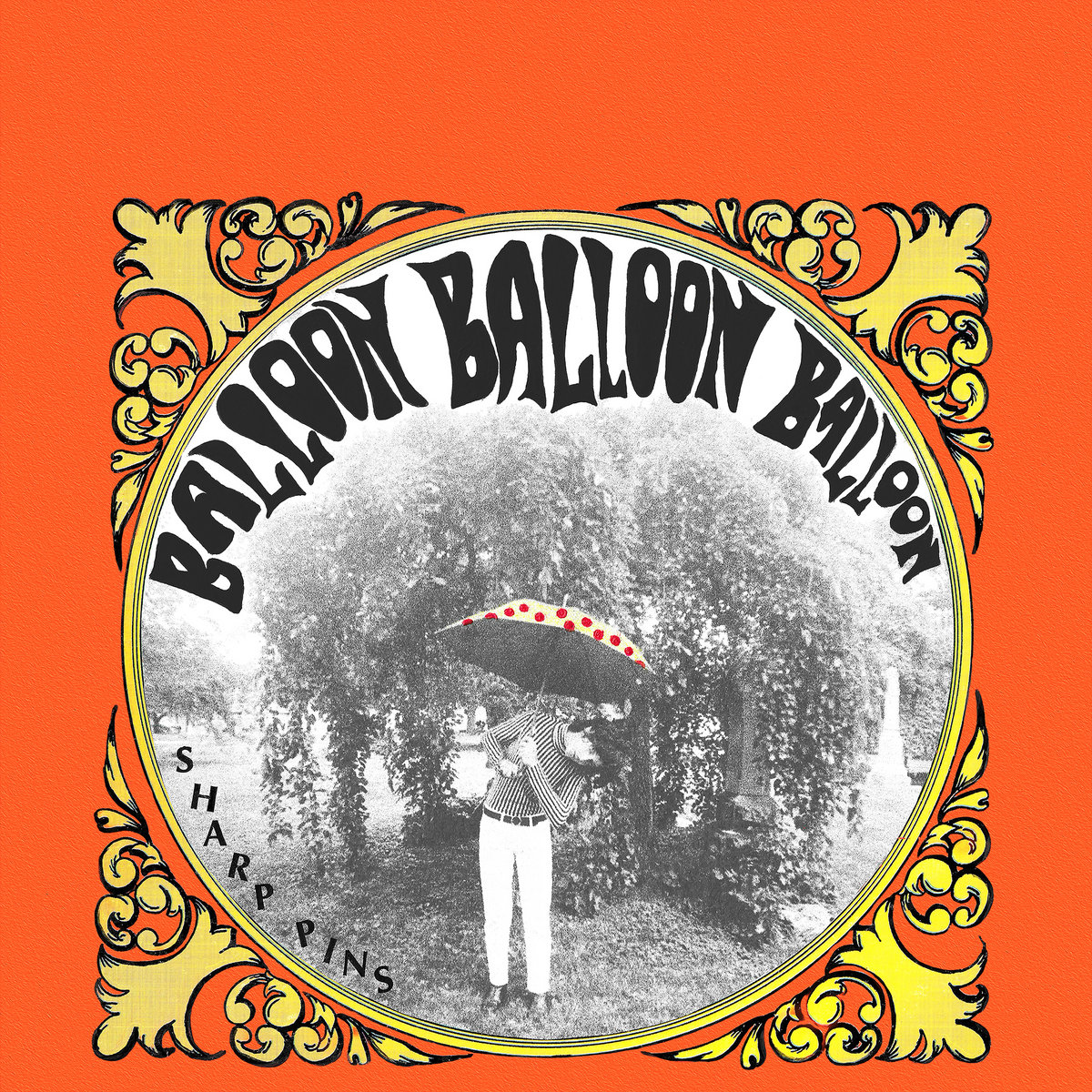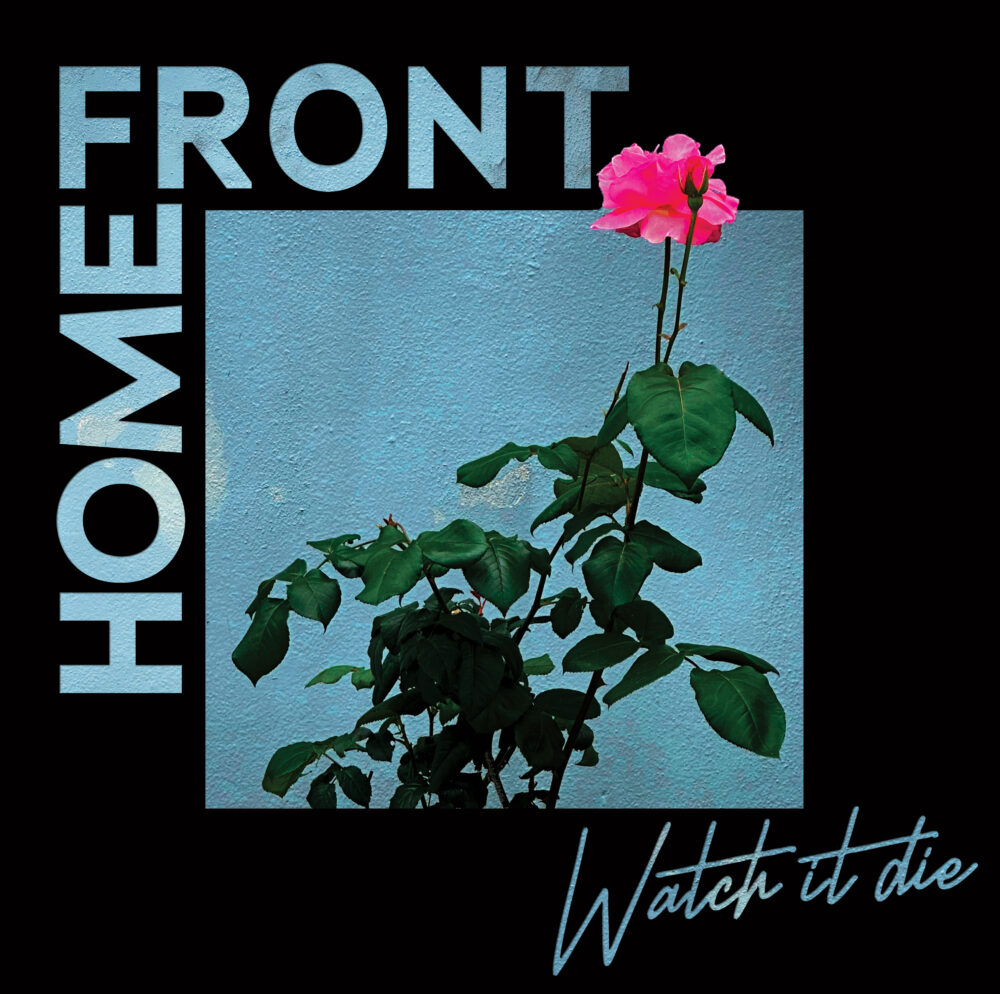Kevin Barnes spent the winter on the verge of a total breakdown while living in Norway. He says as much on "A Sentence Of Sorts In Kongsvinger," the jubilant sixth track on Hissing Fauna, Are You The Destroyer? Released a decade ago today and a decade into of Montreal's career, the album stands as this project's high water mark. Barnes had moved to Norway so that his wife, graphic designer Nina Aimee Grøttland, could give birth to their daughter in her native country. He found himself isolated and depressed, and his relationship with his wife strained. After his daughter, Alabee, was born, he left to tour in support of The Sunlandic Twins, the 2005 of Montreal album that catapulted the Athens, GA-based band to a new level of fame. The resulting stress -- the fear that he wasn't going to be a good or present enough father, the destabilizing notion that his marriage was on the rocks -- fueled the anxious, kaleidoscopic makeup of Hissing Fauna, as Barnes channeled his nervous energy into finely-crafted and buoyant pop songs.
But there was something larger at play than just that, an underlying root cause to Barnes' restlessness and distress. As he told The Stranger:
I went through this chemical depression, and that's when I was writing a lot of the songs for Hissing Fauna. They're all songs about that experience. And I was experiencing it in the moment that I was writing the songs, and sort of asking myself: What the hell is going on? Why are you all of a sudden totally paranoid and plagued by these anxieties? And why is everything so distorted and confusing and fucked up? My lifestyle hadn't changed that much. And then I realized, well, there's something going on inside of me that I don't have control over, and then you realize how vulnerable you are to these things, these elements that you can't understand, or unless you go on medication and get it under control. It's like you're being betrayed by your body.
That vulnerability is threaded throughout Hissing Fauna, and Barnes combats his body's betrayal by packaging his depression into happy-sounding songs that contain his strongest and most intensely personal songwriting ever. "The lyrics tell the story of what was really going on and the music sort of represents this other emotion that I wish existed," he said. "The music was really happy because I wanted to make something that would lift my spirits." Nowhere is that disparity more apparent than on "Heimsdalgate Like A Promethean Curse," the album's jolly calling card, in which Barnes pathetically pleads with his own mind. "Come on chemicals," he chants. "Come on, mood, shift back to good again/ Come on, be a friend." It captures the utter powerlessness that we have over the composition of our own brains, but confronts it in a light-hearted way that makes mental health sound approachable and almost surmountable. The humor inherent in the song offsets the crushing realization that there is no on-off switch, no easy turnkey to make our moods turn back to good again.
What makes Hissing Fauna so remarkable, especially on its first half, is how acutely it expresses the banality of depression, the ways in which you default to doing the bare minimum to take care of yourself, and how you can retreat into fantastical worlds and unrealistic delusions in order to avoid what's really going on inside of you. "Gronlandic Edit" opens with a narrative of a typical melancholy day during Barnes' time spent in Norway: "I am satisfied hiding in our friend's apartment/ Only leaving once a day to buy some groceries." On "Cato As A Pun," Barnes addresses Cato as an estranged friend: "What has happened to you and I?" he asks. "And don't say that I have changed/ 'Cause, man, of course I have." The first six tracks act as variations on a theme: feeling helpless to enact change, but having to deal with the consequences of constant change anyway.
[videoembed size="full_width" alignment="center"]
[/videoembed]
Hissing Fauna takes a pointed turn with "The Past Is A Grotesque Animal," the album's feverish, 12-minute slow-burn centerpiece. Barnes wordily reflects on his failing relationship with Grøttland, trying to pinpoint exactly where it went wrong from the very first moment: "I fell in love with the first cute girl that I met who could appreciate Georges Bataille/ Standing at a Swedish festival discussing 'Story Of The Eye.'" He shouts out the aggressively sexual and macabre Bataille and, later, the hysterically violent climax of Who's Afraid Of Virginia Woolf?, attempting to ascribe some frame of pop cultural reference to the volatility of their relationship. But nothing matches up: "Though our love project has so much potential/ It's like we weren't made for this world/ Though I wouldn't really want to meet someone who was." He's pointing out the special, once-in-a-lifetime nature of their relationship while also signaling its inevitable decline. "Sometimes I wonder if you're mythologizing me like I do you/ We want our film to be beautiful, not realistic," he sings, the repetitive beat becoming claustrophobic. It's an abject recreation of Barnes' intense disassociation and mania, the manifestation of his depressive state and psychotic break in the wake of great unraveling.
The emotional headspace of "The Past Is A Grotesque Animal" is continued on the Icons, Abstract Thee companion EP, which was released a few months after Hissing Fauna came out and represents the original endpoint for the album. Having effectively torn their relationship apart, Barnes turns towards bitter introspective reflection. "Is happiness even possible?" he wonders on "Derailments In A Place Of Our Own." "How can we make things light again? How can we win?" He directly addresses his daughter on "Miss Blonde Your Papa Is Failing," attempting to place their relationship in context for the young listener: "Little friend, whatever happened, you should know that I went down so hard trying to keep the family together." And later: "Sweet friend, was I born to give you a name and then be erased?" That fear of erasure is an echo from "Gronlandic Edit" ("Daylight, I'm so absent-minded, nighttime meeting new anxieties/ So am I erasing myself? Hope I'm not erasing myself") and "Miss Blonde" represents the sad side of the coin, where Barnes sees no potential for the future. On "No Conclusion" he contemplates self-annihilation: "I'm killing myself, but it's not suicide/ I'm killing myself but my friends will never know/ Because I've never been honest with anyone."
[videoembed size="full_width" alignment="center"]
[/videoembed]
Barnes did end up killing himself in a way: He decided to undergo a radical reinvention. Barnes and his wife eventually reconciled (at least for a time -- by 2015's Aureate Gloom, they had officially separated), which spurred the back half of Hissing Fauna in which Barnes transforms into an alter ego named Georgie Fruit. "At one point, the record had a very sad ending, with all these super-heavy breakup songs on it. But then when Nina and I got back together, it changed the landscape. I always want there to be a close connection between my creative spirit and my personal life, so I thought I’d write some new songs," he said in an interview with Wondering Sound. "That's where Georgie Fruit came in."
He would inhabit this persona for two more album cycles, and it allowed him the freedom to explore his sexuality and the more raucous sides of his personality. "Like everyone, I get bored of myself. I really want to be everything, you know? I don’t want to be just one thing," Barnes explained. "I want to incorporate all these things I adore, all my heroes -- I want to be everybody, and to be everybody you kind of have to be nobody. People like David Bowie or Brian Eno or Prince, people who’ve sort of changed a lot -- these people are so important to me. In a lot of ways I feel like a little brother to them, looking up to them and imitating them."
So Barnes created his own Ziggy Stardust: "The character's name is Georgie Fruit, and he's in his late forties, a black man who has been through multiple sex changes. He's been a man and a woman, and then back to a man," he explained to Pitchfork. "He's been to prison a couple of times. In the '70s he was in a band called Arousal, a funk rock band sort of like the Ohio Players. Then he went through a few different phases. It's funny, because, in my mind, when I think about this character, he's so far removed from my personal experiences. But I can somehow identify with this character really well."
Barnes spent the back half of Hissing Fauna and the subsequent two albums creating a world and a vocabulary for this character to occupy, one that was maximalist and hypersexual. "I got my Georgie Fruit on/ He's a dark mutation/ For my demented past time/ Giving replicators somewhere to go," he sings on "Labyrinthian Pomp," a song where he also lays out the trajectory of the next few years of his career: "Skeletal lamping, the controller sphere, false priest," he warbles, names that would all eventually be prescribed to releases of their own.
The transgressive quality of the transformation -- a cisgender white male assuming the identity of a queer transgender person of color -- might rub people the wrong way, and that criticism is entirely valid, but the resulting music is both respectful and emotionally-charged, allowing Barnes to break from his own consciousness as a way to both insulate himself from the fallout of the near-deterioration of his relationship and open up new songwriting avenues that were previously closed to him, which let him to occupy territory that feels completely unhinged from reality. The manic screams on "Faberge Falls For Shuggie," the cocky swagger of "Bunny Ain't No Kind Of Rider," the wailing determination of "She's A Rejecter" -- they're all entirely new experiments for Barnes, and they would propel him in different directions for years to come.
The closing track on Hissing Fauna, "We Were Born The Mutants Again With Leafling," ties together the riotous back half with the more introspective side A. It's a sparkling rumination on rebirth, reconciliation, and the timeless connection that two people who love each other will always share. "Sometimes we're not legible/ But we're the same strange animal/ Let them say our love is peculiar, don't care," Barnes sings. "There's only now, no ever after/ We won't let it end in disaster/ You are my twin, no, I will never go there." As a person, Barnes emerges on the other end of Hissing Fauna as someone who has tapped into parts of his psyche previously unknown, and provided a framework for himself to deal with his mental health. As an artist, he created a vibrant and enduring document of the insular and dissociative nature of depression, and did so by embracing the absurdist aspects of the ongoing battle we face with our own brain.
